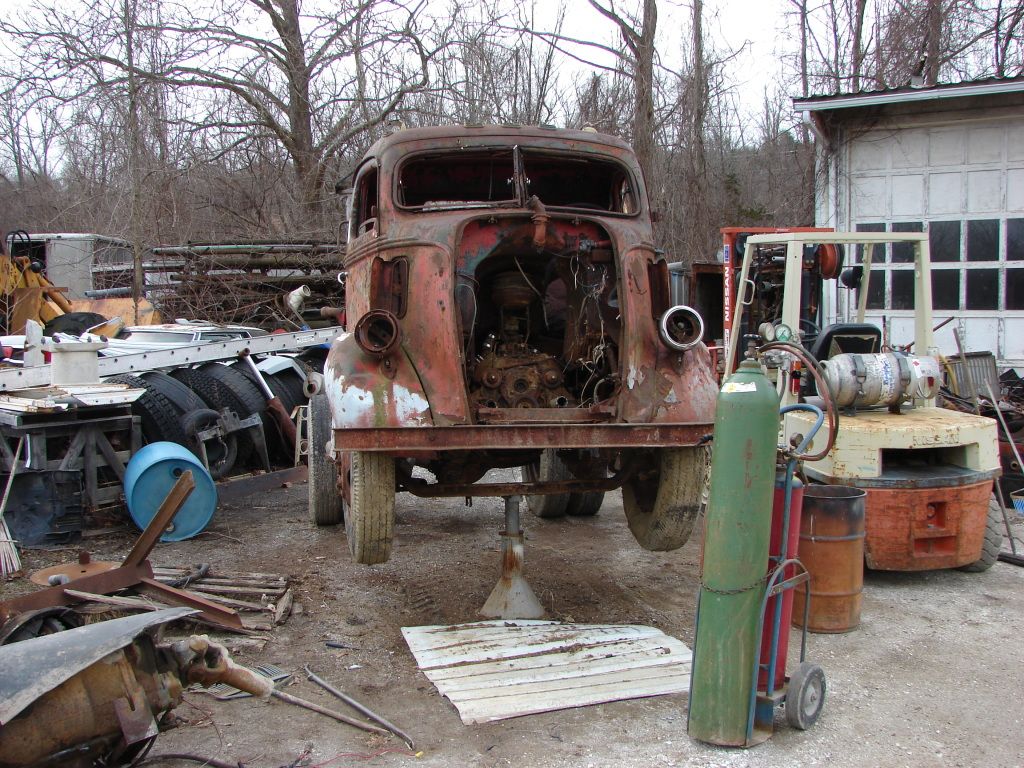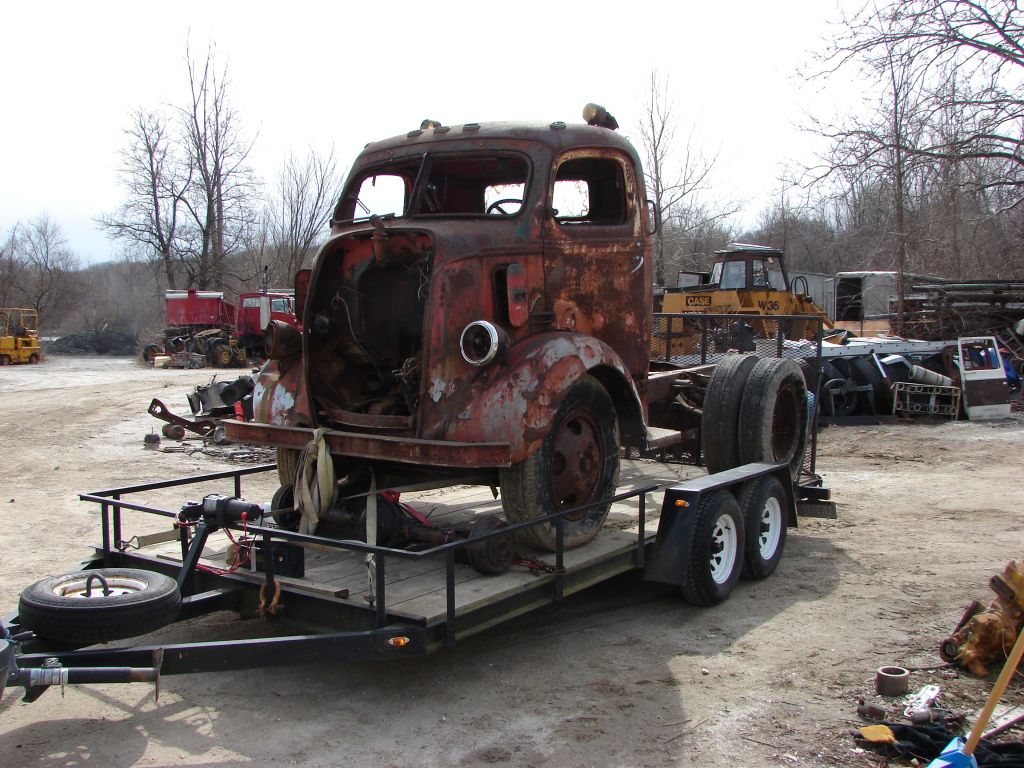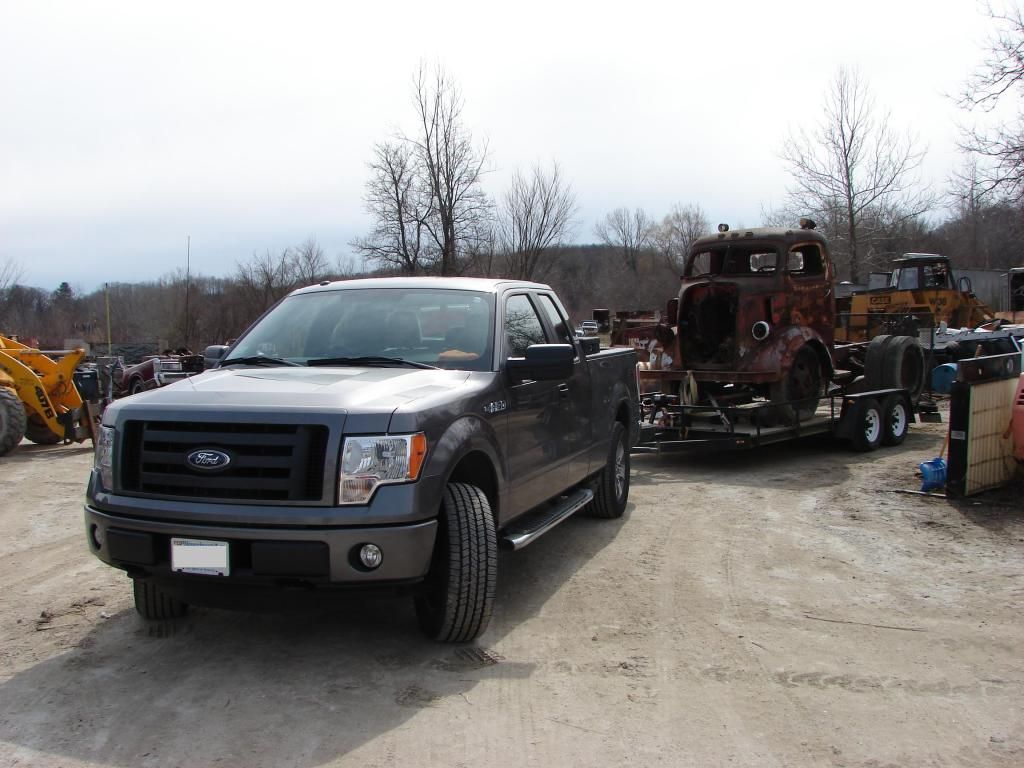I helped my brother drag home his latest project: a 1940 Ford COE.
The kingpins and steering were freed up and the tires actually held air.

We dropped it back down with a forklift and I winched it on to my trailer.

My brother drives an older GMC, but it seemed more appropriate to have my Ford drive it home.

The plan is a full resto. He should have the cab off in a couple of weeks and I'll be rebuilding the engine this summer. I didn't have time to walk the yard (had to meet a guy to sell an axle), but he had a LOT of stuff and I'm looking for an older engine (maybe a Wisconsin) to power my log splitter build. The guy has a lot of industrial stuff and diesel engines galore. I could get in trouble with the misses VERY easily if I started shopping around. LOL!
The kingpins and steering were freed up and the tires actually held air.

We dropped it back down with a forklift and I winched it on to my trailer.

My brother drives an older GMC, but it seemed more appropriate to have my Ford drive it home.

The plan is a full resto. He should have the cab off in a couple of weeks and I'll be rebuilding the engine this summer. I didn't have time to walk the yard (had to meet a guy to sell an axle), but he had a LOT of stuff and I'm looking for an older engine (maybe a Wisconsin) to power my log splitter build. The guy has a lot of industrial stuff and diesel engines galore. I could get in trouble with the misses VERY easily if I started shopping around. LOL!

